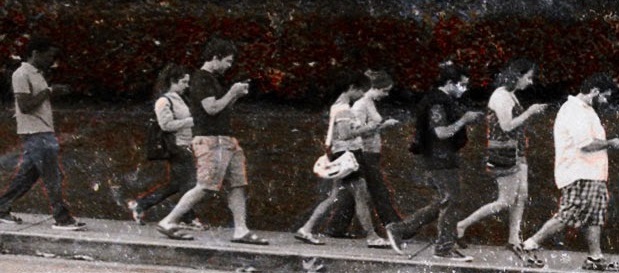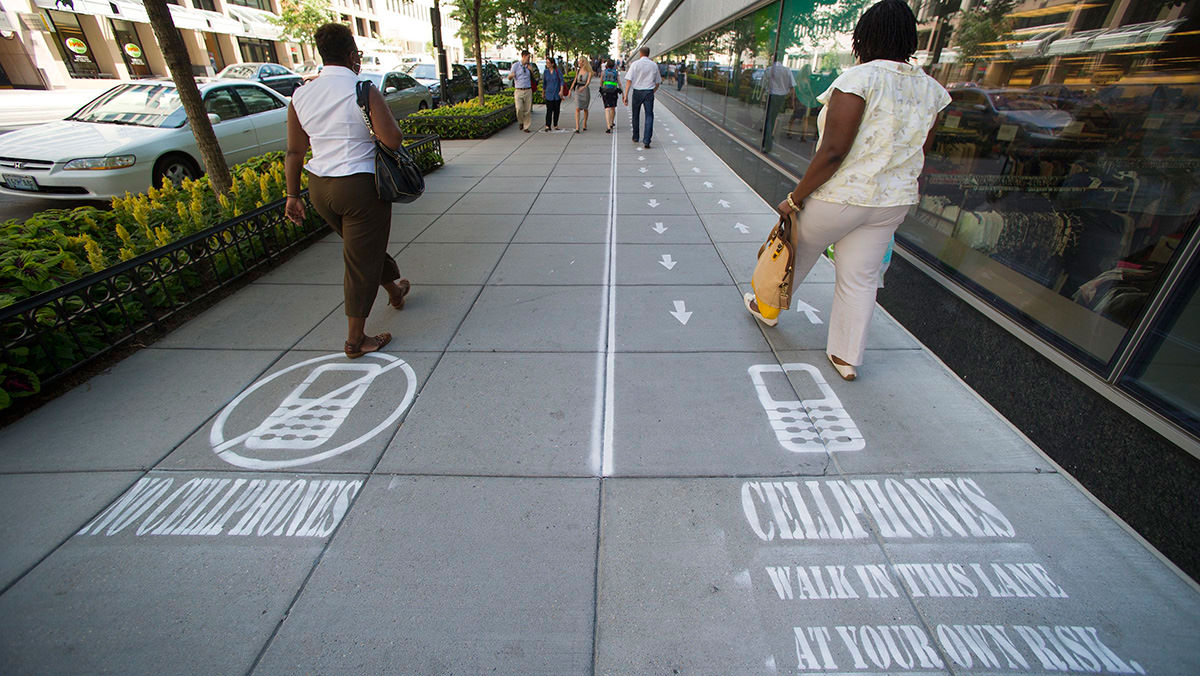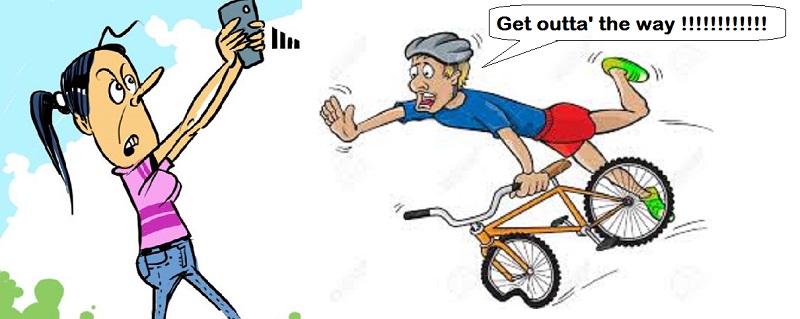Have you ever noticed that most solutions to problems are not real solutions, but merely ways to cope with existing situations to the point where the situation just becomes part of everyday life? Most self-help books, such as Dale Carnegie’s “How to Win Friends and Influence People”, describe fairly negative situations and then provide formulated techniques to help one cope with those situations and/or manipulate those scenarios to one’s own advantage. There is never a technique or strategy given that can help one change the situation for the better, for all, permanently.
On that note, studies indicate that the practice of screen walking - constantly walking with one’s eyes focused on one’s smartphone screen - is set to rise beyond dramatically over the next few years

Smartphone and tablet users reportedly spend about 10 hours a day looking at their screens, and most of that time is while they are walking. There are far too many reported incidents and jokes about people walking into each, totally incognizant of others and their surroundings. Equally reported is the complete disregard for personal safety as well as the safety of others.
One coping solution reported earlier this year described how Germany decided to install street crossing signals (red-yellow-green lights) on the ground at street corners so the mesmerized masses could see, without lifting their heads, when it is safe to cross the streets. Once again, a coping strategy and not a solution. A true solution would get everyone upright and aware.
Now reports are emerging that countries such as Belgium, the UK, Thailand, China and the US are creating screen-walking lanes similar to dedicated bicycle lanes. This kind of opens the floor for questions, of course the first one being how does this solve the problem when you’ll still have distracted pedestrians milling about? If they are focused on those screens, what guarantee do you have they will stay within their dedicated lanes?

If you’ve ever had the not-so-unique pleasure of taking a walk in Manhattan, NYC, you’ll quickly learn that bike riders, who surprisingly have not yet mastered the retrograde skill of texting while riding a bike, rarely obey the rules of the road that apply to the lanes they lobbied so hard to get. They are quite focused on their rides and will quickly yell at you to get out of their way as they go through a red light.

Well, there’s bit of exception here. Bike riders feel that, since they are not burning fuel in a car and not wearing out the hide of some poor animal that might be used to make shoes, they have special rights. After all, they are saving the planet for the rest of us, are they not? Be that as it may.
The bottom line is, if we create separate lanes for cars, motorcycles, and trucks, lanes for bicyclers, lanes for the screen walkers, and lanes for regular pedestrians, we will quickly run out of street and sidewalk space. And we may just set a monumental benchmark in terms of “convergence”, and it won’t be pretty. ~MD
The Parent Story
According to Dan Newman, he who issued a press release recently about this phenomenon, “screen walkers are now evolving extraordinary behaviors; walking without looking up, texting while watching videos, photo editing while queuing the next track on Spotify... all in the company of their coffee date. Who, if still there, is likely to be mirroring the actions.”
He continues, “For the younger generation, little, if anything is being done to counter early instances of this obsession and the accompanied health concerns. Of particular note is the shocking suggestion that we are becoming increasingly passive as a society and retaining extremely little, with reports likening the condition as a style of early onset dementia.” The inevitability of this situation is explored author James Stark in the immersive novel, “The Frequency Effect”

The novel is described as world’s first multi-sensory novel bringing a new and uniquely creative approach to storytelling. The experience integrates a full cinematic soundtrack along with a network of multimedia assets. Touching on relevant themes in society, it promises to cultivate a reader’s imagination, providing an alternate reality existing a few years into the future.